Synthetic Biology FSP

November 2017

|
Dear Colleagues,
Welcome to the first Synthetic Biology Future Science Platform (SynBio FSP) Newsletter. We will be keeping you updated with SynBio FSP news and activities, advertise upcoming events and opportunities, and inform you of organisational issues through this newsletter.
What an exciting last few months it has been! So much has been going on that we’ve only just found time to take a breath and let you know what we’ve been up to. Our highlight event was our inaugural SynBio FSP workshop in September; we met many of you there face-to-face for the first time. Thanks to everyone who attended this great event, especially those who came from overseas—including a few Fellows who hadn’t even started their projects yet. Our research program is well underway: the CSIRO Projects Program started in July, and most projects now have their new staff on board; most of the University Fellows have commenced; the PhD Top-up Scholarship Program has launched; we announced two new Application Domains (Health and Foundation Technologies); and there has been a flurry of activity in various other spaces. We supported the Synthetic Biology Australasia 2017 Conference in September, which was held immediately after the SynBio FSP workshop and was a great success (read the conference report). The Australia-China Symposium on Synthetic Biology was held in October, supported by the Australian Academy of Science, the Australian Academy of Technology and Engineering, and the Chinese Academy of Science. I provided an overview synthetic biology in Australia for this meeting, including the SynBio FSP’s activities.
We have welcomed two new support staff to the SynBio FSP: our admin assistant Nikki Farkas joined us in August (many of you met her at the workshop), and our new Project Manager, Lisa Devereaux, started in October. I’d like to thank Amy Warnick and Cassie Moutia, who did an outstanding job supporting the FSP in our start-up phase.
The SynBio FSP now has over 130 people involved in the research program, including 56 partners in universities and other research organisations across Australia and internationally. We are looking forward to growing our collaboration community through the PhD top-up program and expansion into new Application Domains.
In this edition of the newsletter you’ll find a debrief from our workshop and a number of other news updates. Remember you can also check in at the SynBio FSP website to find out what’s going on in the SynBio FSP.
A welcome guide for staff and affiliates is also now available through our team Confluence page. This is a great resource and includes information about SynBio FSP processes, including external communication and media protocols, support for various activities, such as learning and development and resources, and background to the broader FSP program. Thanks to Chris McKay for putting it together for us.
As noted at the workshop, we will soon be rolling out a Postdoc Training Program for both University and CSIRO Fellows. For University Fellows, please ensure that your CSIRO Visiting Scientist status is activated to access these training resources (contact your CSIRO Mentor for assistance in setting up your VS status, and Lisa Devereaux for further information on the training program).
On behalf of the SynBio FSP Executive, I would like to thank you for your contributions to the FSP thus far. These are exciting times for synthetic biology in Australia and I’m delighted to be a part of the CSIRO Synthetic Biology Future Science Platform. I look forward to working with you and supporting your science over the next few years. Please keep us updated with news as your projects progress!
All the best,
Claudia
Assoc. Professor Claudia Vickers
Synthetic Biology Future Science Platform Leader
CSIRO
News, upcoming events, event reports, etc. can be sent to Chris McKay (chris.mckay@csiro.au) for inclusion in the next newsletter.
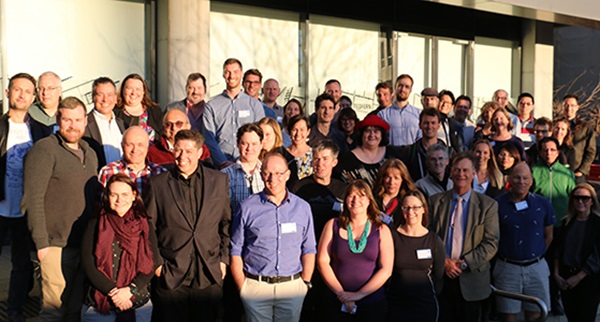
We held our inaugural SynBio FSP Workshop 19-20 September with around 60 people in attendance (unfortunately, as we were constrained by the venue, this did not represent the full FSP contingent – we will be moving to a bigger location for our next workshop). The feedback has been extremely positive and I thank everyone who came for contributing to the vibrant and exciting program.
Our objectives going in were to build the community, share our early stage research plans, and seek constructive feedback from our colleagues. I was really impressed by the high level of engagement with the presentations and the enthusiasm of the audience. It was great to see everyone networking during the breaks and particularly pleasing to see groups of people who hadn’t met previously having lively discussions. Many of these discussions culminated in pitches for the ‘Pitch Session’ at the end of Day 2, which was designed to identify complementary research areas and increase the network connectivity among the group by providing seed funding for small projects. This session was very popular and we were extremely impressed by the number and quality of pitches developed in such a short time during the workshop. Our congratulations again to the four successful teams; we will follow up shortly with further instructions to access funds.
I would like to thank our international visitors, John Glass from the J. Craig Venter Institute (USA), Matthew Chang from the National University of Singapore, Jim Haseloff from Cambridge University, and Myles Axton from Nature Genetics, for their great engagement during the workshop. Our international colleagues help us ensure that we’re producing great science that’s competitive on an international scale. We are very appreciative for the insights that were shared both during the meeting and in discussions afterwards.
I would also like to thank Craig Cormick from ‘Think Outside the…’ for facilitating throughout the workshop and for his very enlightening public attitudes and social science session ‘Opening Pandora’s Box in SynBio’ on the first afternoon. This session was a highlight of the workshop and really focussed us on the contested nature of our research area, as well as forcing us to reconsider how we relate to our science and how we communicate with the broader public.
Thanks to Amy Warnick, Cassie Moutia, and Nikki Farkas for the enormous amount of organisation that went on in the background, and especially to Nikki for taking care of everyone and everything on the day.
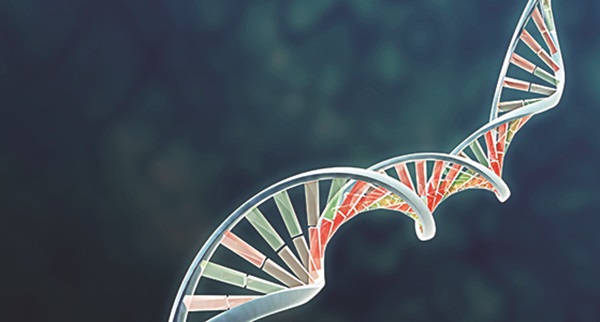
As announced at the workshop, the SynBio FSP will be expanding into a Health Application Domain and a Foundation Technologies Application Domain (the latter of which will incorporate the former Endosymbionts & Organelles Domain). We will shortly be putting out a call for Expressions of Interest for Application Domain Leaders to lead these two new Application Domains. These positions will be open to CSIRO staff only.
The Maximising Impact Science Domain will also be ‘upgraded’ to an Application Domain, reflecting the recent funding grant in this space to develop an FSP-wide initiative in responsible biotechnology. The SynBio FSP is administering this initiative on behalf of the FSP program.
All projects have been allocated to an Application Domain for administrative purposes (even where your project aligns with more than one Application Domain). Some projects have been re-aligned to more appropriate Application Domains. The relevant Application Domain Leaders will soon establish contact with their teams to assist with project management and reporting now that most of the projects are up and running.
|
Lisa Devereaux is our new Project Manager and can assist with operational enquiries and coordinate with finance, communications, training, reporting, business development, and other support staff. She has over twelve year’s experience in the commercialisation of research. For the past seven years, Lisa has held roles in Business Development for CSIRO across a number of business units including Data61, eHealth and Exploration and Mining. These roles including managing licensing and contract negotiations for industry funded projects.
Lisa has also previously held the position of Senior Project Manager at the University of Queensland at the Sustainable Minerals Institute responsible for centre operational management and research contract coordination. For 3 years, Lisa was a Manager for the Australian Institute for Commercialisation, responsible for the delivery and marketing of the Commercialisation Bootcamp, a two-day professional development program, which introduces researchers to the various stages of the commercialisation process. During this time, she also managed the QLD State Government funded Ideas2Market programs across Queensland introducing over 500 new participants to the program.
|
Nicole Farkas joins the team in the role of Administration Officer and brings over 10 years of experience in administration and office support, across various industries. She has studied Project Management, Human Resources and Management throughout her employment history and has proceeded to gain invaluable skills and experience in both the public and private sectors. During her employment as a Project Officer for Queensland Health she assisted the Senior Project Manager in the successful implementation and upgrade of the Intensive Care Unit (CareVue) Project at both the RBWH and RCH.
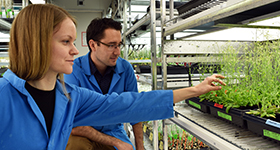 " After="" />
" After="" />
With most of the new SynBio Future Science Fellows having commenced work on their projects, the FSP’s full program of work is taking shape.
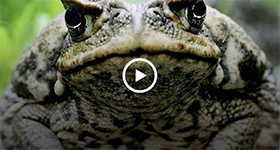 " After="" />
" After="" />
Dr Mark Tizard was on ABC RN’s The Science Show to talk about CSIRO’s work using CRISPR-Cas9 to target the toxin produced by cane toads.
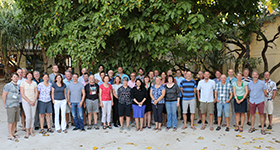 " After="" />
" After="" />
The FSP supported the Engineering Resilience: Synthetic Biology Solutions to Environmental Change symposium in September. It brought together researchers from around the globe to discuss solutions to major conservation problems.
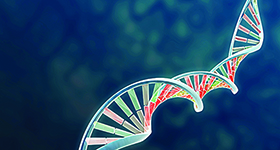 " After="" />
" After="" />
The OGTR have made public their recommendations for the revisions that will be made to the Gene Technology Regulations, within the policy framework of the current Gene Technology Scheme, under the Gene Technology Act.